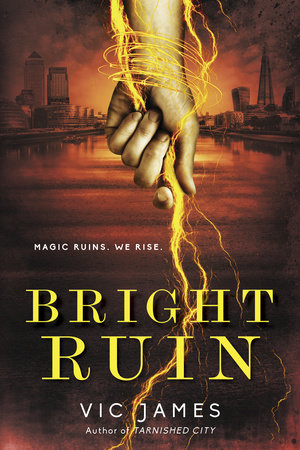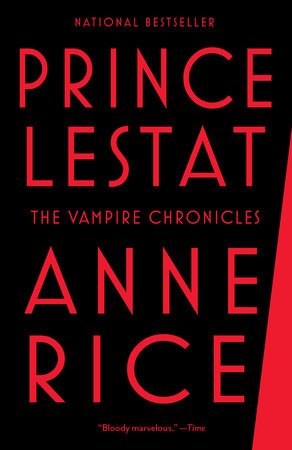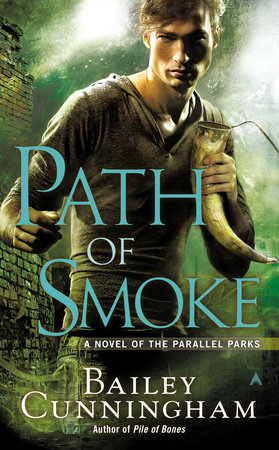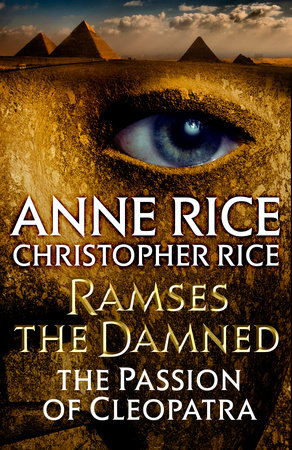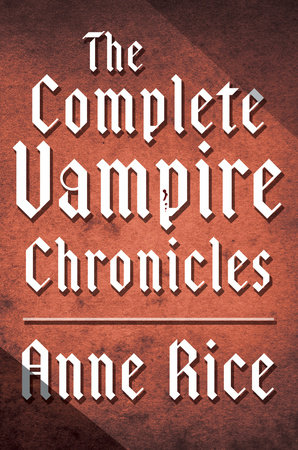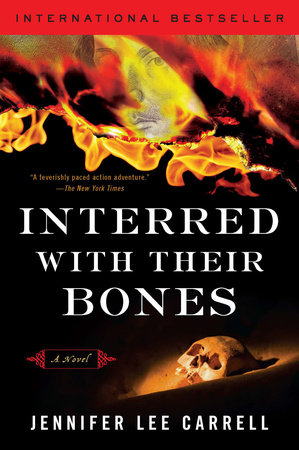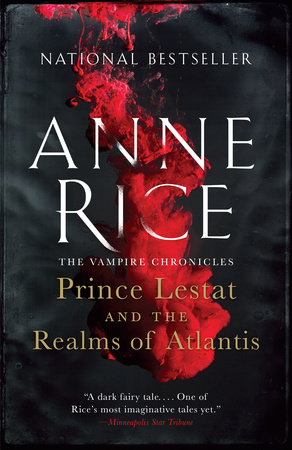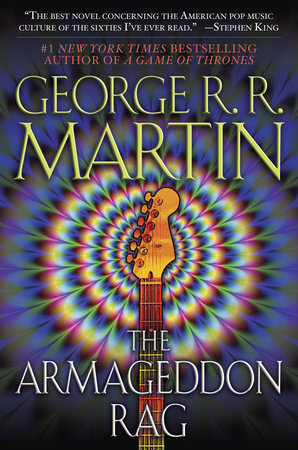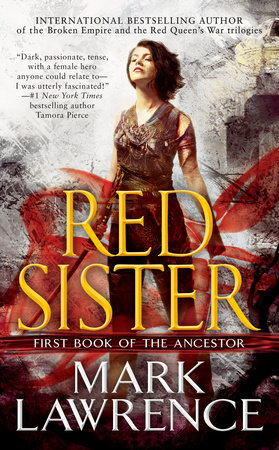Q: It’s been almost two years since The Wolf Gift was published. What has been the most fun for you about writing this new series?
A: The new cosmology is terrific fun. Since this is a brand new series, I’m able to evolve a whole new type of supernatural character—the morphenkind, or man wolf—and make up an origin story for the species and work with what powers these creatures have and so forth. I’ve loved that. But as always the novels are about character, and I do love the new cast—Reuben my youthful hero, his family, and the contemporary setting. As always I like blending a family story with a supernatural story. I’ve done this with the Mayfair Witches and to some extent with the vampires. But the very most fun? I guess the new cosmology—that Reuben the Man Wolf is a comic book hero, living a double life as a reporter and a man wolf.
Q: A defining element of your werewolves is that they are sentient during transformation, but also that they can detect and hunt out evil. How does The Wolves of Midwinter begin to blur those clear lines of good vs. evil for your main character, Reuben?
A: Well, Reuben and Stuart—both young man wolves—are coming to see the obvious, that there is no real objective standard in the world of what is good or evil, much as we all wish that there was. And in some situations, they do not see clearly what to do. They transform into powerful beast men and can easily kill and punish evil doers, but what happens when the evil doer is contrite and becomes a victim himself? Do they stop in their tracks? Their powers put an immense burden on those human beings who know what they are. Is it moral for a good man to contact Reuben and ask for his help with despicably evil murderers, knowing full well that Reuben has the power to transform into a Man Wolf and bring immediate death to the evil ones? In The Wolves of Midwinter they confront this problem for the first time.
Q: What was it about the unfinished nature of Reuben’s relationship with Marchent that inspired you to bring back her ghost in The Wolves of Midwinter?
A: Marchent was a very strong character and she left the narrative early. She died violently. I thought what if she lingers, confused, uncertain, an earthbound spirit in need of guidance to the light? I think it was her character and how strong she felt to me in the first book that prompted me to bring her back. When I write I believe the old cliché: there are no small parts, only small actors. And so even if a character is going to be in a book for a very short while (as Marchent was in the first book) I’ll go deep into that character, seeking to make that character very real, and then when the character is dispatched, well I miss the character. That’s what happened with Marchent.
Q: The Wolves of Midwinter features the emergence of other “Ageless Ones,” like the Forest Gentry, and the strange servants who serve the Distinguished Gentlemen. How do these new characters allow you build upon the werewolf mythology you’ve created?
A: It’s flat out unrealistic to present a universe in which the morphenkinder are the only preternatural inhabitants. It’s a failure of imagination to not ponder what other supernatural or preternatural beings they might know or interact with. I thought it only natural that immortal morphenkinder would know a lot about spirits, ghosts, and so forth, and other immortals. It was fun to imagine new species. And I love writing about ghosts. I am doing it in other books now as well as in The Wolf Gift Chronicles. I have a mythology of ghosts and spirits that transcends any individual series I’ve written and I just love it. With Reuben and his friends, I feel like I’m just getting started on their world. I may bring in other elements soon. For now though the Forest Gentry and the “strange servants” are really delighting me.
Q: The Wolves of Midwinter also introduces new members of other werewolf packs, suggesting a much larger world exists beyond the Distinguished Gentlemen. Will we learn more about the past history of the Morphenkinder as the series continues?
A: Yes, as the series continues we will learn much more about the history of the Morphenkinder. I already have a big surprise brewing for book three. And of course we have only begun to see in this second book how morphenkinder from other parts of the world can make serious trouble for Reuben, Felix, Margon and the inhabitants of Nideck Point. I feel that in these two Wolf Gift books I’ve opened many doors and I want this to develop into a huge fantasy series.
Q: So much of the setting and atmosphere of The Wolves of Midwinter is tied to traditional Christmas holiday rituals. What experiences and research did you draw from to create such a rich setting? Were you inspired by European holiday festivals? What was your favorite part of creating the Festival in Nideck Point?
A: I am enthralled with Yuletide customs the world over but particularly those of Europe and America. I did intensely research them, seeking for material everywhere. I have used intense Christmas symbols and mythology in The Witching Hour and in Lasher, and I am very interested, as you can see, in delving into it with the wolves. I am intrigued as to why our heritage includes belief in ghosts walking at Christmastime and so many Christmas ghost stories, like those written in Victorian England, for instance. I’m intrigued with the ancient European custom of people dressing as beasts and in animal skins around Christmastime—with customs involving bonfires and echoes of human sacrifice. Clearly the feast of midwinter was serious business in our past, a time when we celebrated the cycles of the earth, the desperate hope that the warm spring and summer sun would return, in spite of the ice and snows, and that we would see light and growth and possibility again. That’s in our blood as human beings. And to me all this is related to the very idea of the man wolves—that we humans remember on some level when we were very primitive and closer to the animal world than we are today, that our nature is always animal and divine mixed together, that we are mammals with souls. Christmas is the great feast at the very heart of our cultural experience of these mysteries. God becoming man in the Christ Child in the dark of winter is a potent symbol for all of us—human beings who are spiritual as well as physical—and for our great need to control our animal nature while never forgetting it.
Q: By contrast, the Yuletide ritual of the werewolves is much more pagan and primitive. Did you know that scene would be such a climax of the book when you started? Or did you discover its power as you were writing?
A: Yes, I started out with the idea of exploring how the wolves would celebrate the pagan feast of midwinter as well as the Christmas feast of midwinter. I have introduced characters who are immortals, one of whom at least was born long before the Christian era, and I wanted to see how as a tribe the morphenkinder would honor this ancient and evolving feast of Yule.
Q: How does technology play a role in a series where your hero Reuben is a young reporter grappling with an ancient transformation? Is it challenging to fuse the contemporary aspects of Reuben’s life (his iPhone, laptop, etc.) with the timelessness of the Chrism?
A: If Reuben is to be believable as a contemporary reporter he has to be involved with technology. I have to ask myself, how would he use all the technological devices we have today in confronting the Wolf Gift? It’s only natural that he would photograph himself in transformation with his iPhone, and look up werewolves on the web, and of course write down his thoughts on his computer. It would be a failure of imagination to try to present some atmospheric gothic world today in which technology doesn’t exist. We supernatural writers have to meet the challenges of today in writing our stories. I love the gothic atmosphere of Nideck Point, the gothic aspects of Christmas, but to present a quaint world without flat screen TVs, or desk top computer or iPhones, would just be ridiculous and shallow. I believe that great gothic stories can be told today as well as ever and that referencing all our technological advances can be done with no sacrifice of romance or gothic thrills.
Q: Can you give us a hint for things to look forward to in the next book in The Wolf Gift Chronicles?
A: It’s too early for me to say. Right now I’m thinking a lot about Sergei, the Russian man wolf, and about Stuart, the young gay man wolf, but I’m not sure where the story will go. I do think it might involve more chunks of time, much more travel, more conflict and so on. And I have not forgotten little Suzie Blakely or Pastor George, two key characters in The Wolves of Midwinter. We might hear more from them too. Reuben is in a real world, and it is a world filled with potential trouble and potential adventure.
Q: What have been your favorite reactions from fans about your return to the gothic?
A: Naturally I love their enthusiasm for the characters and the storytelling. I love that readers are willing to follow me into something wholly new. I’ve published over thirty books and there are always flattering requests for old characters and old stories to continue. But I treasure the response of those who are delighted with something fresh and contemporary.






